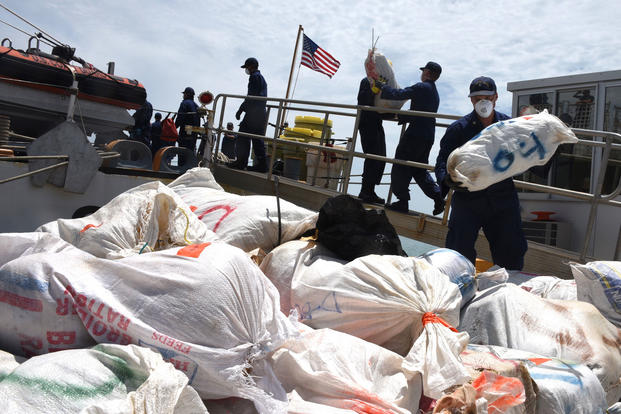Nearly 57,000 U.S. Coast Guard members and civilian employees could face furlough without pay if Congress fails to pass a stop-gap spending bill that would keep portions of the government running until Feb. 8.
Unlike the Defense Department services, the Coast Guard, which resides in the Department of Homeland Security, will be greatly affected by a budget stalemate if it isn't resolved by midnight.
While it's uncertain how day-to-day Coast Guard operations would be affected, it's likely that the active-duty force, which totals more than 40,500 members, would work without pay during the duration of a shutdown. This has occurred in previous shutdowns; the service members later were awarded their regular paychecks. The Coast Guard would not comment on the possible effect of a shutdown on operations until one occurs and referred all other questions to the Office of Management and Budget, CWO Barry Lane said.
The latest shutdown comes at a time when the service finds itself operating under tight funding conditions while its global missions are on the rise.
The Coast Guard had been hopeful that the pending budget would have included budget dollars for a much-needed heavy polar icebreaker. But the budget impasse has threatened that funding, since the House of Representatives reapportioned the money for the ship to help pay for President Donald Trump's desired border wall.
Related content:
- Trump's Demand for Wall Pushes Government Closer to Shutdown
- GOP Senators Meeting with Trump over Shutdown Standoff, Border Wall
- Military Pay Not Likely to Be Affected Under Threat of Partial Government Shutdown
For five months, the Coast Guard has been capped at fiscal 2018 spending levels while its sister services under the DoD received their 2019 funding shortly before the new fiscal year started in October.
The service has just one working heavy-lift icebreaker, the Polar Star, which provides services to Antarctica, and a medium icebreaker, which primarily conducts patrols and science missions in the Arctic, a region where other nations, most notably Russia and China, are moving to extend their military footprint.
In addition to an increase in Arctic missions, the Coast Guard's worldwide operations are growing: The service is heavily involved in drug interdictions in South America and the Caribbean, intercepting roughly 457,000 pounds of cocaine in fiscal 2018. In 2017, the Coast Guard set a service record, seizing 493,000 pounds of drugs on the high seas and in ports.
The service's mission is to protect the borders, provide maritime traffic safety, conduct port operations, perform search-and-rescue duties and enforce fisheries laws. It is expanding its interest in hybrid warfare tactics and has been seeking out new technologies to improve operations, including mimicking the Army's future vertical lift program.
Coast Guard Commandant Adm. Karl Schultz said at a Military Reporters and Editors conference earlier this year that one of his priorities is to make a case for a bigger, better funded Coast Guard.
"We do sit in that discretionary, non-defense part of the budget, so we're competing with a lot of national priorities," he said. "Ninety percent of the Coast Guard budget is classified as non-defense discretionary funding. We were shortsighted in the past not making some of these needs known."
-- Oriana Pawlyk can be reached at oriana.pawlyk@military.com. Follow her on Twitter at @Oriana0214.










